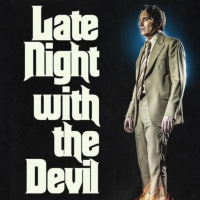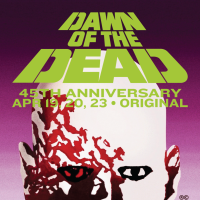There's an unflashy clarity to the documentary "Bill W." that suits its subject. William G. Wilson, the "stinking rotten drunk" who had an epiphany and co-founded Alcoholics Anonymous in 1935, was a Vermont Yankee whose life's work was predicated on humility and service.
Today's celebrity rehab news cycle would likely displease him; a true believer in the value of anonymity, he turned down an honorary degree from Yale and a cover story in Time (which later placed him in the top 20 "Heroes and Icons" of the 20th century).
Bill W., as he was known within AA, was an icon to the group during his lifetime — an unwanted stature that took its toll, as first-time directors Kevin Hanlon and Dan Carracino show through rich archival material, interviews and dramatizations. Enactments can stop a documentary cold, but here they work perfectly, lending a period luster to the meticulously researched film, and complementing the audio of Wilson's sharp New England bray.
Tracing Wilson's first Bronx cocktail through late-in-life LSD experiments, the filmmakers pierce to the essence of his struggles and breakthroughs. To create the 12 steps with Akron surgeon Bob Smith, Wilson pushed beyond the era's limited medical knowledge and the moralism of the temperance movement, drawing tenets from the evangelical Oxford Group.
There are no naysayers among the interviewees. Historians and AA members, shot in modesty-protecting shadow, are here to praise (and thank) Wilson. Laudatory but never simplistic, "Bill W." is a thoroughly engrossing portrait of Wilson, his times and the visionary fellowship that is his legacy.
In 1999, Bill Wilson was named one of TIME Magazine’s 100 Heroes and Icons of the 20th Century for his role as co-founder of Alcoholics Anonymous. But 65 years earlier, in 1934, he had faced almost certain death from his uncontrollable drinking. At the time, medicine viewed alcoholism as a symptom of deeper psychiatric issues, and alcoholics were treated with lobotomies, shock therapy, or imprisonment. Despite this, Bill Wilson found a way to sobriety, and then forged a path for countless others to follow. With Bill as its driving force, A.A. grew from a handful of men to a worldwide fellowship of over 2 million men and women. Thousands of people throughout the world now credit him with saving their lives – both alcoholics and members of dozens of other 12 Step recovery groups. Bill’s leadership eventually made him an icon within A.A. – and a man unable to be a member of the very society he had created. Through interviews, recreations, and rare archival material, Bill W. traces Wilson’s life through his 17 years of devastating alcoholism, the crucial years of A.A.’s founding and growth, his battle with depression, his experimentation with LSD, and his struggle with celebrity status in an anonymous society. A reluctant hero, Bill Wilson lived a life of sacrifice and service, and left a legacy of recovery that continues every day, all around the world.
Bill W. took eight years of full-time work to complete. The filmmakers conducted research in dozens of archives and private collections, and interviewed A.A. members and historians in the United States, Canada, and Europe.
Making a film about the founder of an anonymous society, especially one who died in 1971, presented many obstacles, of course. Very few people who knew Bill W. were still alive at the time this production began. At first, it seemed as if there would be very little visual material available for use in a film. But research and a healthy dose of good fortune allowed the producers to unearth film footage and photographs – including some that had never been seen before – and some new material that had not been included in previous written biographies of Bill Wilson. As a result, Bill W. presents a new look at the co-founder of Alcoholics Anonymous.



















